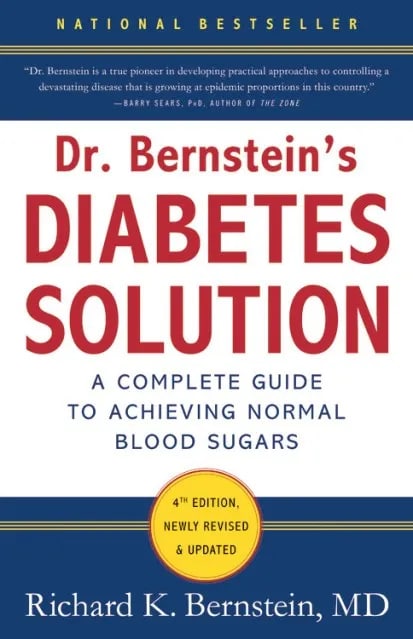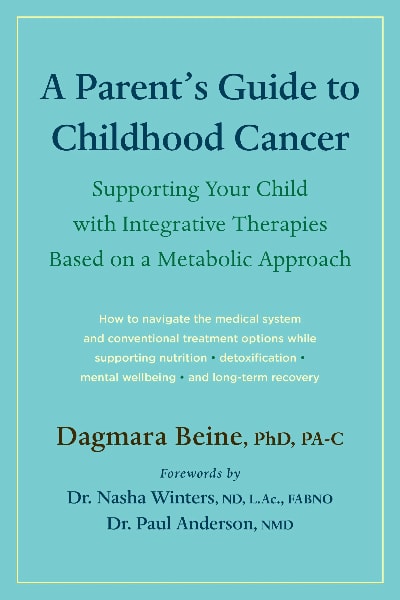What Is the Ketogenic Diet?
The ketogenic (keto) diet was originally developed in 1923 by a doctor at the Mayo Clinic to help control seizures in children with epilepsy. These days, it is used for controlling or reversing symptoms of a myriad of chronic health conditions such as autism, cancer, diabetes, neurological conditions, autoimmune conditions and more. (See Benefits of the Ketogenic Diet, below). We recommend working with your healthcare practitioner for implementing this diet for your child.
It is a high-fat, low-carbohydrate diet that mimics the effects of fasting because the body stops burning glucose and begins using ketones from stored fat for fuel. This is a state known as ketosis, meaning that it is burning the stabler fuel source of ketones rather than glucose.
While many people say that they are following a ketogenic diet, in truth they are not unless about 60-75% of their calories come from fat and about 5-10% of daily calories come from carbohydrates, which usually equates to 30 grams of carbohydrates or less per day. Most people keep track of what are called “net carbs”, or the net amount of carbohydrates, which equals the total amount of carbohydrates in grams minus the amounts of fiber and sugar alcohol in grams. Eating in this way usually causes the body to be in a state of ketosis.
A common misconception about the keto diet is that it is a high-protein diet; this is not the case. Protein consumption is similar to other diets where protein makes up about 20-35% of calories.
To do this diet properly, you’ll need to weigh and keep track of your foods in a spreadsheet or app that tracks macronutrient (fat, carbohydrate and protein) percentages. To make sure that you’re in ketosis, you’ll need to purchase a home ketone monitor and measure ketone levels a few times per day. (See What Are Optimal Levels of Ketones, below, for target ketone ranges.) It’s also a good idea to measure and track blood glucose levels at the same time so that you can see how these levels correlate to each other.
This diet can be difficult to implement without continuously measuring, weighing and tracking foods to keep carbohydrate levels low enough to maintain ketosis. Macronutrient levels of fat and carbohydrate must be very specific and consistently maintained to reap benefits.
Variations of the ketogenic diet are the Modified Atkins Diet (MAD), MCT (medium chain triglyceride) diet and LGIT (low glycemic index treatment) diet. These versions typically don’t require as much strict adherence to weighing and tracking of the macronutrients of fats, carbohydrates and protein.
What Are Optimal Levels of Ketones?
Ketones can be measured in urine, breath and blood. Blood levels are accurately and easily assessed with a home ketone monitor, which is similar to a home glucose monitor in that a finger is pricked for blood and the blood is placed on a test strip which is inserted into a monitor.
Ketone readings of 0.5 – 3.0 mmol/L are what most clinicians agree are optimal levels of ketones to be in light-to-moderate ketosis. For those with conditions such as epilepsy, cancer, or endocrine and metabolic disorders, therapeutic levels between 3.0 – 5.0 mmol/L may be more beneficial. Fasting, aerobic exercise and higher-fat diets often lead to higher levels of ketones.
Type 1 diabetics should use caution when following a keto diet, as ketone levels of about 9.0 mmol/L combined with a blood glucose level above 240 mg/dl can lead to the serious condition of ketoacidosis. Type 1 diabetics should be supervised by a medical practitioner if they choose to follow this diet.
Benefits of the Ketogenic Diet
Thousands of research studies have documented the potential benefits of implementing a ketogenic diet. (See Sources & References, below). Some of these benefits include:
- Reduction of seizures
- Control of blood sugar (glycemic control)
- Reduction of insulin sensitivity
- Reduction of inflammation
- Enhancement of mitochondrial function
- Improvement of liver function
- Control of hormone levels
- Improvement of DNA methylation
- Increase of beneficial microbiota
- Decrease of gut pathogens by denying them of their preferred food sources
- Keeping glutamate levels in check because it controls low blood sugar effects
- Stabilization of moods
Because of these many benefits, the ketogenic diet has been used to control or reverse symptoms of the following conditions (see Sources & References, below):
- Alzheimer’s and other dementias
- Parkinson’s
- Cancer
- Multiple sclerosis
- Autism
- ADHD
Potential Side Effects
Therapeutic benefits of the ketogenic diet must outweigh known risks. Some potential side effects of this diet include dehydration, ketoacidosis (especially in type 1 diabetics), hypoglycemia and gastrointestinal distress. Work with your healthcare practitioner to determine if this diet is helpful for your child.
What’s Avoided and Allowed in the Ketogenic Diet
While no foods are technically off-limits, keto-diet followers will find it extremely difficult to stay in a state of ketosis if they don’t limit their carbohydrate intake. Higher-carbohydrate foods will usually “kick you out of ketosis”. Maintaining ketosis is easiest with the elimination of all grains, legumes, and starchy foods including corn, rice, potatoes, sweet potatoes and starchy vegetables. Most sweeteners are also removed.
What Is Dirty Keto?
Dirty keto uses processed foods to fulfill ketogenic macronutrient requirements. For example, you’ll often see ingredients such as cream cheese or artificial sweeteners in recipes. We urge you to steer clear of such foods, as they can add to the total load of stressors on the body. We recommend that you avoid foods that contain:
- Refined carbohydrates
- Processed foods
- Vegetable oils
- Trans fats
- Preservatives
- Artificial colors
- Artificial and natural flavors
- Other additives such as lecithin or carrageenan
What Is Clean Keto?
Clean keto foods have significantly higher amounts of vitamins, minerals, antioxidants, polyphenols and other phytonutrients than processed foods because these are foods that were raised/grown as they naturally do. There is a focus on organic, grass-fed and wild-caught foods, which means that foods are grown without pesticides, antibiotics or hormones. Clean keto foods include:
- Animal fats
- Coconut oil
- Avocado oil
- Olive oil
- Palm oil
- Grass-fed meats
- Wild-caught seafood
- Pasture-raised organic eggs and foul
- Coconut milk
- Fermented foods
- All non-starchy vegetables
- Fruit (in very limited amounts); berries are best
- Nuts and seeds (in very limited amounts)
- Single-ingredient spices and herbs
- Apple cider vinegar
- Coconut vinegar
Learn more about eating a clean diet here.
Implementation Tips for the Ketogenic Diet
The following tips can add to your success in switching to a ketogenic diet from a Standard American Diet (SAD):
- Add in more protein, fat and fiber to each meal and snack to lessen cravings for sweets and carbohydrates.
- Eating sour foods like pickled foods can often stop the craving for carbohydrates.
- “Carbs beget carbs” means that if you’ve eaten a high-carbohydrate food, you’re more likely to crave more until blood sugar and ketone levels are brought back into line.
- Remember that healthy foods such as vegetables, fruits, nuts, olives and avocados contain carbohydrates. These are not foods to be eaten freely without weighing and tracking their macronutrients.
- Pecans and macadamia nuts have lower levels of carbohydrates than other nuts do.
- Add avocado slices or other healthy fats to a dish to increase the fat content.
- Explore “fat bomb” recipes. Fat bombs are high-fat desserts that are sweetened with monkfruit and/or sugar alcohols.
- Not everyone tolerates sugar alcohols well, and research indicates that it could be related to the risk of a cardiovascular event.
- Some companies sell fat bombs that are also called keto cups. These contain ingredients such as coconut, chocolate and nuts and are usually one to two grams of net carbohydrates per serving.
- Sugar alcohols can often increase blood sugar levels even though they are considered keto. If you’re looking to control blood sugar, eliminate sugar alcohols or at least track blood sugar after eating to see the response.
- Eat low-/no-carb snacks such as zero-sugar beef jerky, eggs and dill pickles when blood-sugar levels are higher than desired.
- Try substituting foods such as spiralized zucchini and cauliflower rice for grain-based noodles and rice.
- Try out new recipes with your family to find foods that they like and will eat before you completely pull the plug on the processed foods you’ve previously eaten.
- Add in MCT (Medium Chain Triglycerides) oil and/or exogenous ketones to boost ketone levels. Go easy on the MCT oil to begin with, as it can cause loose stools.
- Not all foods sold as “keto” or “keto-friendly” are actually keto. Be sure to read the label to see how the macronutrients fit in to your daily limits.
- Full-fat coconut milk is your friend! A one-third cup serving has 14 grams of fat and two grams of carbohydrates. It is naturally sweet and contains about 54% MCT oils.
- Add in fattier sauces such as hollandaise, mayonnaise (get the kind not made with vegetable oil) and pesto.
- Plain, Dijon and German mustards have zero calories and zero carbohydrates per serving. Read the nutritional label to make sure there are no added sweeteners.
Still Looking for Answers?
Visit the Epidemic Answers Practitioner Directory to find a practitioner near you.
Join us inside our online membership community for parents, Healing Together, where you’ll find even more healing resources, expert guidance, and a community to support you every step of your child’s healing journey.
Sources & References
Accurso, A., et al. Dietary carbohydrate restriction in type 2 diabetes mellitus and metabolic syndrome: time for a critical appraisal. Nutr Metab (Lond). 2008 Apr 8:5:9.
Aggarwal, B.B., et al. Molecular targets of dietary agents for prevention and therapy of cancer. Biochem Pharmacol. 2006 May 14;71(10):1397-421.
Allen, B.G., et al. Ketogenic diets as an adjuvant cancer therapy: History and potential mechanism. Redox Biol. 2014:2:963-70.
Anand, P., et al. Cancer is a preventable disease that requires major lifestyle changes. Pharm Res. 2008 Sep;25(9):2097-116.
Bahr, L.S., et al. Ketogenic diet and fasting diet as Nutritional Approaches in Multiple Sclerosis (NAMS): protocol of a randomized controlled study. Trials. 2020 Jan 2;21(1):3.
Bernstein, R.K. Virtually continuous euglycemia for 5 yr in a labile juvenile-onset diabetic patient under noninvasive closed-loop control. Diabetes Care. 1980 Jan-Feb;3(1):140-3.
Boison, D. New insights into the mechanisms of the ketogenic diet. Curr Opin Neurol. 2017 Apr;30(2):187-192.
Bostock, E.C.S., et al. The Current Status of the Ketogenic Diet in Psychiatry. Front Psychiatry. 2017 Mar 20:8:43.
Brenton, J.N., et al. Phase II study of ketogenic diets in relapsing multiple sclerosis: safety, tolerability and potential clinical benefits. J Neurol Neurosurg Psychiatry. 2022 Jun;93(6):637-644.
Brenton, J.N., et al. Pilot study of a ketogenic diet in relapsing-remitting MS. Neurol Neuroimmunol Neuroinflamm. 2019 Apr 12;6(4):e565.
Cheng, N., et al. Metabolic Dysfunction Underlying Autism Spectrum Disorder and Potential Treatment Approaches. Front Mol Neurosci. 2017 Feb 21:10:34.
Coller, H.A. Is cancer a metabolic disease? Am J Pathol. 2014 Jan;184(1):4-17.
deCampo, D.M., et al. Ketogenic dietary therapies for epilepsy and beyond. Curr Opin Clin Nutr Metab Care. 2019 Jul;22(4):264-268.
de la Rubia Orti, J.E., et al. Can Ketogenic Diet Improve Alzheimer’s Disease? Association With Anxiety, Depression, and Glutamate System. Front Nutr. 2021 Oct 27:8:744398.
de la Rubia Orti, J.E., et al. Exploring the impact of ketogenic diet on multiple sclerosis: obesity, anxiety, depression, and the glutamate system. Front Nutr. 2023 Aug 25:10:1227431.
Dietch, D.M., et al. Efficacy of low carbohydrate and ketogenic diets in treating mood and anxiety disorders: systematic review and implications for clinical practice. BJPsych Open. 2023 Apr 17;9(3):e70.
Duan, W., et al. Hyperglycemia, a neglected factor during cancer progression. Biomed Res Int. 2014:2014:461917.
Dyńka, D., et al. The Role of Ketogenic Diet in the Treatment of Neurological Diseases. Nutrients. 2022 Nov 24;14(23):5003.
Feinman, R.K., et al. Dietary carbohydrate restriction as the first approach in diabetes management: critical review and evidence base. Nutrition. 2015 Jan;31(1):1-13.
Giovannucci, E., et al. Diabetes and cancer: a consensus report. Diabetes Care. 2010 Jul;33(7):1674-85.
Gough, S., et al. Neuroprotection by the Ketogenic Diet: Evidence and Controversies. Front Nutr. 2021 Nov 23:8:782657.
Grochowska, K., et al. The Effect of the Ketogenic Diet on the Therapy of Neurodegenerative Diseases and Its Impact on Improving Cognitive Functions. Dement Geriatr Cogn Dis Extra. 2022 May 30;12(2):100-106.
Irish, A.K., et al. Randomized control trial evaluation of a modified Paleolithic dietary intervention in the treatment of relapsing-remitting multiple sclerosis: a pilot study. Degener Neurol Neuromuscul Dis. 2017 Jan 4;7:1-18.
Jiang, Z., et al. Effects of Ketogenic Diet on Neuroinflammation in Neurodegenerative Diseases. Aging Dis. 2022 Jul 11;13(4):1146-1165.
Kapoor, D., et al. Emerging Role of the Ketogenic Dietary Therapies beyond Epilepsy in Child Neurology. Ann Indian Acad Neurol. 2021 Jul-Aug;24(4):470-480.
Karkafi, R.E., et al. Ketogenic Diet and Inflammation: Implications for Mood and Anxiety Disorders. Adv Exp Med Biol. 2023:1411:537-554.
Labbé, D.P., et al. Role of diet in prostate cancer: the epigenetic link. Oncogene. 2015 Sep 3;34(36):4683-91.
Lee, C., et al. Reduced levels of IGF-I mediate differential protection of normal and cancer cells in response to fasting and improve chemotherapeutic index. Cancer Res. 2010 Feb 15;70(4):1564-72.
Lee, R.W.Y., et al. A modified ketogenic gluten-free diet with MCT improves behavior in children with autism spectrum disorder. Physiol Behav. 2018 May 1:188:205-211.
Lefevre, F., et al. Ketogenic diet for the treatment of refractory epilepsy in children: A systematic review of efficacy. Pediatrics. 2000 Apr;105(4):E46.
Lennerz, B.S., et al. Management of Type 1 Diabetes With a Very Low-Carbohydrate Diet.
Pediatrics. 2018 Jun;141(6):e20173349.
Li, Q., et al. A Ketogenic Diet and the Treatment of Autism Spectrum Disorder. Front Pediatr. 2021 May 11:9:650624.
Liu, H., et al. Refined fructose and cancer. Expert Opin Ther Targets. 2011 Sep;15(9):1049-59.
Lorenzi, M., et al. High glucose induces DNA damage in cultured human endothelial cells. J Clin Invest. 1986 Jan;77(1):322-5.
Mentzelou, M., et al. The Relationship of Ketogenic Diet with Neurodegenerative and Psychiatric Diseases: A Scoping Review from Basic Research to Clinical Practice. Nutrients. 2023 May 11;15(10):2270.
Mierau, S.B., et al. Metabolic interventions in Autism Spectrum Disorder. Neurobiol Dis. 2019 Dec:132:104544.
Mu, C., et al. Metabolic Framework for the Improvement of Autism Spectrum Disorders by a Modified Ketogenic Diet: A Pilot Study. J Proteome Res. 2020 Jan 3;19(1):382-390.
Olivito, I., et al. Ketogenic diet ameliorates autism spectrum disorders-like behaviors via reduced inflammatory factors and microbiota remodeling in BTBR T+ Itpr3tf/J mice. Exp Neurol. 2023 Aug:366:114432.
Onodera, Y., et al. Increased sugar uptake promotes oncogenesis via EPAC/RAP1 and O-GlcNAc pathways. J Clin Invest. 2014 Jan;124(1):367-84.
Operta, F.F., et al. The Ketogenic Diet for the Treatment of Mood Disorders in Comorbidity With Epilepsy in Children and Adolescents. Front Pharmacol. 2020 Nov 24:11:578396.
Pietrzak, D., et al. The Therapeutic Role of Ketogenic Diet in Neurological Disorders. Nutrients. 2022 May 6;14(9):1952.
Pulsifer, M.B., et al. Effects of ketogenic diet on development and behavior: preliminary report of a prospective study. Dev Med Child Neurol. 2001 May;43(5):301-6.
Seyfried, T.N. Cancer as a metabolic disease. Nutr Metab (Lond). 2010 Jan 27:7:7.
Seyfried, T.N. Cancer as a metabolic disease: implications for novel therapeutics. Carcinogenesis. 2014 Mar;35(3):515-27.
Seyfried, T.N., et al. Consideration of Ketogenic Metabolic Therapy as a Complementary or Alternative Approach for Managing Breast Cancer. Front Nutr. 2020 Mar 11:7:21.
Seyfried, T.N., et al. Is the restricted ketogenic diet a viable alternative to the standard of care for managing malignant brain cancer? Epilepsy Res. 2012 Jul;100(3):310-26.
Seyfried, T.N., et al. Metabolic management of brain cancer. Biochim Biophys Acta. 2011 Jun;1807(6):577-94.
Smith, J., et al. Ketogenic diet restores aberrant cortical motor maps and excitation-to-inhibition imbalance in the BTBR mouse model of autism spectrum disorder. Behav Brain Res. 2016 May 1:304:67-70.
Stafstrom, C.E., et al. The ketogenic diet as a treatment paradigm for diverse neurological disorders. Front Pharmacol. 2012 Apr 9:3:59.
Tao, Y., et al. Ketogenic Diet: An Effective Treatment Approach for Neurodegenerative Diseases. Curr Neuropharmacol. 2022 Nov 15;20(12):2303-2319.
Tidman, M.M., et al. Effects of an low carbohydrate/healthy fat/ketogenic diet on biomarkers of health and symptoms, anxiety and depression in Parkinson’s disease: a pilot study. Neurodegener Dis Manag. 2022 Apr;12(2):57-66.
Tinkum, K.L., et al. Fasting protects mice from lethal DNA damage by promoting small intestinal epithelial stem cell survival. Proc Natl Acad Sci U S A. 2015 Dec 22;112(51):E7148-54.
Vargas, D.D., et al. Effectiveness of nutritional interventions on behavioral symptomatology of autism spectrum disorder: a systematic review. Nutr Hosp. 2022 Dec 20;39(6):1378-1388.
Witkowski, M., et al. The artificial sweetener erythritol and cardiovascular event risk. Nat Med. 2023 Mar;29(3):710-718.
Resources
Articles
Mayers, Dara. The nutrition advice given to most diabetics might be killing them. U.S. News Health & Medicine, July 2003.
Totty, Patrick. ADA’s Latest Low-Carb Stance Is Severely Flawed, Says Longtime Low-Carb Advocate Dr. Bernstein. Diabetes Health, 8 February 2008.
Books
Bernstein, Richard K. Dr. Bernstein’s Diabetes Solution: The Complete Guide to Achieving Normal Blood Sugars. Little, Brown Spark, 2011.
Jockers, David. Keto Metabolic Breakthrough: A Radical Approach to Reversing Metabolic Dysfunction, Optimizing Nutrient Timin g, and Balancing Hormones for Success on a Low-Carb Diet. Victory Belt Publishing, 2020.
Seyfriend, Thomas. Cancer as a Metabolic Disease: On the Origin, Management, and Prevention of Cancer. Wiley, 2012.
Wahls, Terry. The Wahls Protocol: A Radical New Way to Treat All Chronic Autoimmune Conditions Using Paleo Principles. Avery, 2020.
Wahls, Terry. The Wahls Protocol Cooking for Life: The Revolutionary Modern Paleo Plan to Treat All Chronic Autoimmune Conditions. Avery, 2017.
Winters, Nasha. The Metabolic Approach to Cancer: Integrating Deep Nutrition, the Ketogenic Diet, and Nontoxic Bio-Individualized Therapies. Chelsea Green Publishing, 2017.
Websites
Dr. Bernstein’s Diabetes Solution




